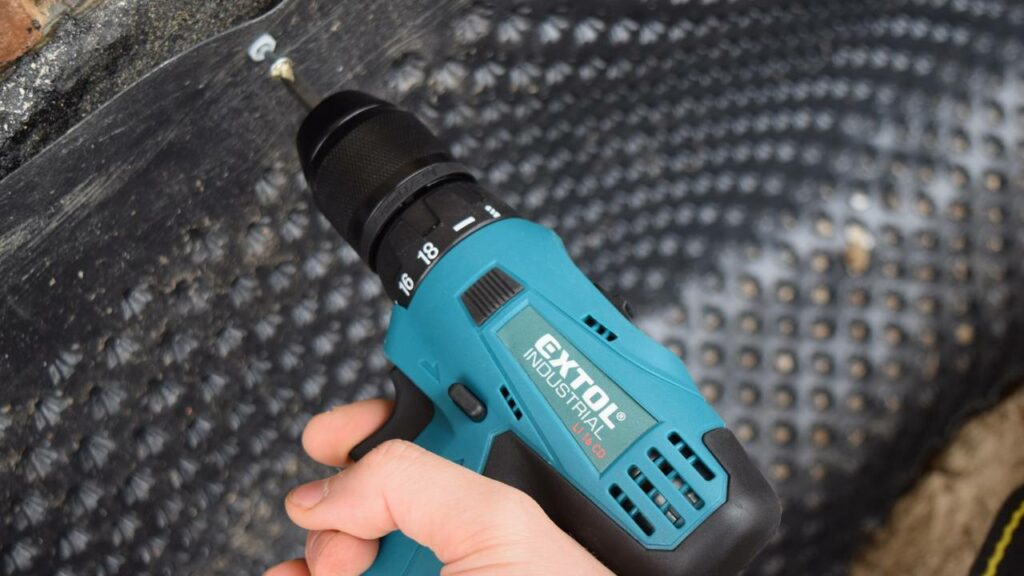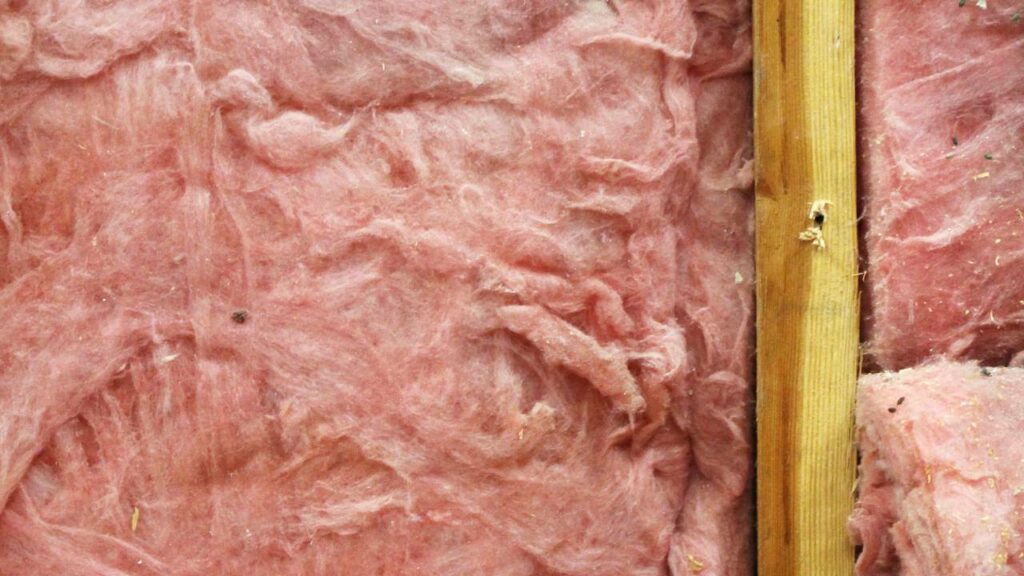In this insulation handbook, we’ll explore different types of insulation materials suitable for various applications and how to select the right one for your needs. Whether starting from scratch or looking to improve your existing setup, the information provided here will help you make informed decisions that make a real difference.
Moreover, this article will delve into proper installation and maintenance techniques to ensure your investment pays off over the long term. By focusing on insulation best practices, you’ll be well on your way to creating a thriving and efficient business space for yourself, your employees, and your customers. So, let’s get started on the road to maximising your business’s potential through improved insulation.
Insulation Application

Retrofits vs. New-Builds
Retrofits involve adding insulation to existing structures. When undertaking a retrofit project, assessing your current insulation and determining any gaps or weak points is essential. You can consult with experienced contractors to help you examine your premises and create an effective insulation plan to address your needs. Proper insulation in your business premises can increase energy efficiency and improve comfort.
Adding insulation during new-build projects is comparatively easier as the installation can be integrated into the construction process. This allows you to utilise advanced insulation techniques and materials that might not be feasible in retrofit situations. Collaborate with contractors and architects to ensure your new business premises meet the necessary insulation standards.
Whether retrofitting or building anew, hiring professional contractors is a must. These experts can guide you in choosing suitable insulation materials, provide timely installation, and help ensure your investment yields the desired results. It’s also crucial to remain informed about any building regulations relevant to your project.
Additionally, when you’re contemplating a sizeable remodelling project, use this opportunity to upgrade the insulation in your establishment. Improved insulation will contribute to energy savings and better comfort and add value to your property.
Professional vs DIY
When insulating your business, you have two primary options: hiring a professional contractor, like Usher Insulations, or taking the DIY (Do-It-Yourself) approach. Each choice has pros and cons, so let’s explore them to help you make an informed decision.
Pros of hiring professionals:
- Expertise – Contractors have the necessary experience and training to ensure proper insulation installation. They’re well-versed in the building codes and regulations and can handle unexpected issues during the installation process.
- Time-efficient – Professional insulation installers can complete the job much faster than a DIY project, letting you focus on running your business.
- Quality – Hiring a professional contractor ensures high-quality insulation materials and a job well done, providing your business with better energy efficiency.
Cons of hiring professionals:
- Cost – Hiring professional insulation contractors can be more expensive upfront than doing it yourself. You should consider, however, that poorly installed insulation can lead to higher energy bills and may require further maintenance in the long run.
Pros of DIY insulation:
- Cost-saving – DIY insulation can save you money initially, as you’re not paying for contractors’ labour costs. You can also look for deals on materials and take advantage of sales.
- Control – With a DIY approach, you have full control over the project, allowing you to choose the type of insulation materials and the areas of your business that you want to insulate.
Cons of DIY insulation:
- Time-consuming – Insulating your business on your own can take a significant amount of time, especially if you’re not experienced in the field. This time could be better spent on your business operations.
- Potential mistakes – Inexperience can lead to improper insulation installation, which can cause problems such as dampness, mould, and decreased energy efficiency. These issues can result in additional costs in the long run.
Types of Insulation
As a business owner, knowing about the latest insulation innovations is essential. This section will explore three primary categories: Blanket Types, Foam Options, and Rigid Boards.
Blanket Types
Blanket insulation is popular due to its affordability and ease of installation. Here are some common blanket insulation materials:
- Fibre Glass Batt Insulation – Made from glass fibres, this material is lightweight and easily fits between studs, joists, and rafters.
- Loose Fill – Typically made from cellulose, loose-fill insulation can be poured or blown into wall cavities, floors, and attics.
- Reflective Insulation Systems – These consist of a reflective foil surface and an air gap to prevent radiant heat transfer.
However, some older buildings may have asbestos insulation, which can pose health risks. It’s crucial to have a professional inspect and remove asbestos before installing new insulation.
Foam Options
Foam insulation offers excellent thermal performance and is available in various forms to suit your needs:
- Polyurethane Spray Foam – This foam expands upon application, filling gaps and providing excellent insulation value.
- Urea Formaldehyde Foam Insulation (UFFI) – Although not as popular due to concerns about formaldehyde emissions, UFFI is a foam insulation that hardens upon application.
Some alternative options for insulation include:
- Ceramic Coatings – Thin ceramic layers are applied to walls, roofs, and other surfaces that reflect heat.
- Silica Aerogel – A lightweight, translucent material with low thermal conductivity, making it a highly effective insulator.
Rigid Boards
Rigid board insulation products are often used in commercial and industrial settings and offer long-term durability. Some options include:
- Structural Insulated Panels (SIPs) – These combine insulation and structural elements, providing a robust and energy-efficient building solution.
- Insulating Concrete Formwork (ICF) – ICFs are built using hollow blocks filled with insulating material, adding insulation and structural support in one.
- Vacuum Insulated Panels (VIPs) – VIPs sandwich a core of vacuum-sealed insulation between two protective layers, providing up to ten times the insulating power of traditional materials.
Building Codes and Standards

As a business owner seeking to transform the workspace, it’s crucial for you to be aware of the building codes and standards in your area. These regulations are in place to ensure the safety, health, and well-being of occupants in commercial and residential buildings. Knowing these requirements will help you make informed decisions when insulating your property.
First and foremost, check your local building codes. These can vary by region, so make sure you know the specific requirements for your building. This information can usually be found through your local council or a professional tradie.
You may encounter specific guidance on the minimum R-values required for insulation materials. R-values measure the thermal resistance of insulation – in other words, how effective it is at preventing heat transfer. The required R-values might differ depending on your location and the type of building you own.
Remember that higher R-values often lead to better insulation performance, translating into energy savings and increased comfort for you and your occupants. In addition to meeting building codes, it’s important to consider the types of insulation that suit your needs best. Many options are available, from traditional materials like mineral wool and fibreglass to more sustainable choices like cellulose or sheep’s wool.
Another aspect to consider when insulating your property is ensuring proper ventilation. Adequate air circulation is vital for maintaining a healthy indoor environment, and it can affect the efficiency of your insulation. Your local building codes may have specific requirements for ventilation, so be sure to consult those as well.
Lastly, don’t forget to comply with fire safety regulations. Many insulation materials are non-combustible or have a low fire risk, but double-checking the fire safety ratings of your chosen materials is essential.
Insulation Performance
Thermal Comfort
Proper insulation can greatly improve the thermal comfort of your building. Modern insulations and radiant barriers can effectively block heat flow and keep your space warm during the winter and cool during the summer. Incorporating thermal insulation into your business can create a more comfortable environment for you and your staff.
Energy Efficiency
One of the primary benefits of insulation is improved energy efficiency. With less heat being transferred between the inside and outside of your building, you’ll experience lower heating and cooling costs. R-value, which measures a material’s effectiveness at stopping energy transfer, can help you select the best insulation. In addition, consider the insulation’s life cycle cost to ensure that you make a cost-effective investment.
Resistance Features
Insulation materials have varying resistance levels to fire, moisture, and insects. When selecting the appropriate insulation for your building, consider these factors:
- Fire resistance – Some insulation materials are designed to be fire-resistant, providing an added level of safety in your building.
- Mould and insect resistance – Certain insulation materials can resist mould growth and are unappealing to insects, reducing maintenance and potential health concerns.
- Moisture and vapour transmission – Insulation that effectively blocks air and moisture can help to maintain a dry and healthy indoor environment.
Environmental and Health Impact
As a responsible business owner, you should consider the environmental and health impacts of your insulation choices. Look for insulation materials that are:
- Environmentally responsible – Select insulation products made from recycled or renewable materials, which can help reduce the environmental impact of your business.
- Vermin resistant – Opt for insulation that is resistant to vermin, helping to protect your building while reducing the use of harmful pesticides.
- Health impact – Some insulation materials, such as those containing isocyanates, may pose health concerns for occupants. Be sure to research potential health risks and select insulation materials that prioritise safety.
Profitability Analysis

When considering home insulation for your business, it’s essential to look at the profitability aspects. This section will discuss two main components affecting your profit margins: operational costs and revenue potentials.
Operational Costs
The first thing you need to assess is your operational costs, which include electric, gas, oil, and HVAC repair bills. Let’s break down these costs:
- Electric bills – Insulating your property can significantly reduce energy consumption, lowering electric bills. Opting for high-quality insulation can lessen the burden of these expenses on your business.
- Gas and oil bills – Just like electric bills, proper insulation can help you control your gas and oil consumption, lowering these utility bills.
- HVAC repair bills – Insulation can help maintain a stable indoor temperature, reducing the need for constant heating or cooling. This can lead to less wear and tear on your HVAC system and fewer repair bills.
- Material cost – While insulation materials vary, choosing a material that offers excellent performance without breaking the bank is important. Remember, a higher initial investment might save you money in the long run.
Revenue Potentials
Another important aspect to consider is the potential for increased revenue from well-insulated properties. This can manifest in various ways:
- Higher rental rates – Energy-efficient properties can command higher rental rates in the market. Equipping your property with top-notch insulation can attract renters who value sustainability and are willing to pay a premium.
- Lower vacancies – An energy-efficient property is more attractive to potential tenants, making it easier to find renters and decrease vacancies.
- Better reputation – A well-insulated, environmentally responsible property reflects positively on your business. It can enhance your reputation and help attract more customers in the future.
Conclusion
Hopefully, this guide to insulation solutions has helped you learn more about the long-term benefits of creating an environmentally responsible business that thrives in a more comfortable space. Take the time to explore your options and make a well-informed choice for your insulation project.


